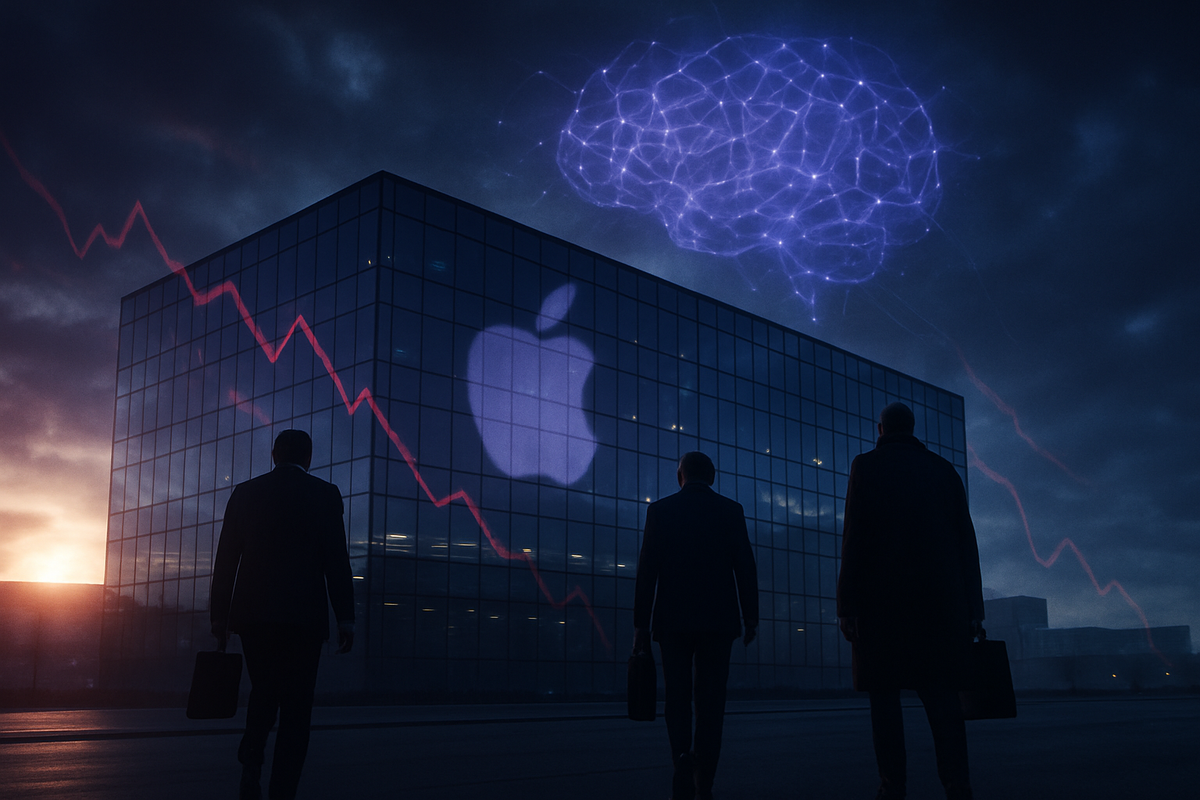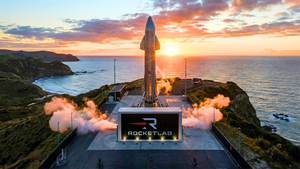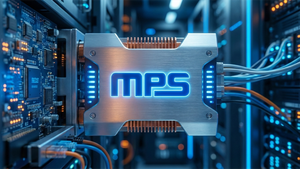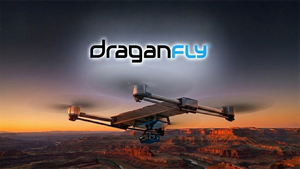
Apple's (NASDAQ: AAPL) artificial intelligence (AI) strategy is facing intense scrutiny, casting a shadow over the tech giant's future trajectory. A high-profile executive departure, coupled with growing concerns from market analysts, points to a perceived lag in the company's AI development compared to fierce rivals. These events are prompting questions about Apple's ability to innovate swiftly in the rapidly evolving AI landscape, with immediate implications for its market standing and long-term competitive edge.
The current situation highlights a critical juncture for Apple. As the industry races to integrate generative AI across all product lines, the Cupertino-based company appears to be navigating a challenging path, grappling with talent retention issues and the pressure to deliver transformative AI experiences. The market is closely watching how Apple will address these challenges, particularly as its stock performance has lagged behind other major tech players, fueling speculation about potential strategic shifts and partnerships.
Key Departures and Development Delays Spark AI Doubts at Apple
The core of the current turmoil at Apple revolves around a significant brain drain from its AI division and a series of perceived delays in its ambitious AI initiatives. A pivotal moment is the impending departure of Robby Walker, a senior AI executive who previously helmed Siri's development and most recently led the "Answers, Information, and Knowledge" team. This team is reportedly working on a secretive AI-powered web search system, aiming to launch in 2026 to compete with emerging players like Perplexity and established giants. Walker's exit, scheduled for October 2025, injects a substantial degree of uncertainty into the timeline and future of this critical project.
Walker's departure is not an isolated incident but rather the latest in a troubling trend of senior AI talent exiting Apple's ranks. Over recent months, a number of key AI researchers and engineers, including Ruoming Pang, Frank Chu, Jian Zhang, Mark Lee, Tom Gunter, Bowen Zhang, and Yun Zhu, have reportedly left the company. Many have been lured by lucrative opportunities at competitors, most notably Meta's (NASDAQ: META) AI labs, underscoring the fierce competition for specialized AI expertise in the tech industry. This talent exodus is particularly concerning as it risks depleting Apple's institutional knowledge and slowing its innovation pace in a field where speed is paramount.
Analyst concerns have amplified this internal strife, focusing on Apple's perceived lagging position in the generative AI race. Despite the introduction of its "Apple Intelligence" suite in late 2024, the rollout has been slow, and a much-anticipated overhaul of the voice assistant Siri has been pushed back until at least 2026. This slow pace has led analysts to downgrade Apple's (NASDAQ: AAPL) stock, with D.A. Davidson, for instance, shifting its rating from "buy" to "neutral," citing doubts about Apple's short-term potential without significant AI product innovation. The collective sentiment is that Apple needs to dramatically accelerate its AI roadmap, either through aggressive internal investment, strategic acquisitions, or robust external partnerships, to regain its competitive footing.
Tech Giants and AI Innovators Poised to Capitalize on Apple's AI Stumbles
Apple's (NASDAQ: AAPL) AI strategy woes are sending ripples across the technology landscape, creating distinct beneficiaries and those facing increased pressure. While Apple grapples with talent retention and delayed AI rollouts, its competitors are strategically positioning themselves to capture market share and talent, accelerating the broader AI race.
Among the clearest winners is Meta Platforms (NASDAQ: META). The social media giant has actively capitalized on the exodus of AI talent from Apple, aggressively recruiting high-profile executives and engineers. Noteworthy departures from Apple to Meta include Ruoming Pang, former head of Apple’s AI models group, and Frank Chu, former director of engineering for Apple's AI teams. These strategic hires, often lured by substantial compensation packages, directly bolster Meta's "Superintelligence Labs" and its foundational AI model development, sharpening its competitive edge against other tech behemoths.
Google (NASDAQ: GOOGL) also stands to gain significantly. Already a leader in AI with advanced models like Gemini, deeply embedded in its Android ecosystem and Google Cloud services, Google is well-positioned to strengthen its dominance. Apple's struggles with Siri and delays in its own AI-powered web search system, codenamed "Answers," provide Google with an opportunity to further entrench its leadership in AI search and voice assistance. Google currently commands a 35% market share in consumer AI tools, a stark contrast to Apple’s 15%, highlighting its superior head start. Furthermore, Microsoft (NASDAQ: MSFT) and its strategic partner OpenAI are also major beneficiaries. OpenAI, known for its transformative ChatGPT, stands to expand its reach significantly through Apple's partnership to integrate ChatGPT into iOS, iPadOS, and macOS. This collaboration cements OpenAI's role as a foundational AI provider, directly expanding its user base and market influence.
Beyond the tech titans, agile AI startups like Perplexity, specializing in AI-powered web search, and foundational model developers like Anthropic and DeepSeek, are finding fertile ground. Apple's internal challenges and potential need for external solutions could translate into significant partnership or even acquisition opportunities for these innovators. The increased demand for underlying AI infrastructure also benefits Nvidia (NASDAQ: NVDA), a leading provider of AI chips, which has seen its market value soar to over $4 trillion. Similarly, key semiconductor manufacturers like Taiwan Semiconductor Manufacturing Co. (NYSE: TSM) and Arm Holdings (NASDAQ: ARM), and AI server providers like Foxconn (OTC: FXCOF), are poised for continued robust demand as the entire industry invests heavily in powering AI capabilities.
On the other side of the ledger, Apple (NASDAQ: AAPL) itself faces considerable challenges. The "brain drain" of key AI talent, including a reported 20% of its AI team in the first half of 2025, represents a significant impediment to its research and development efforts. Delays in key projects like the Siri overhaul, pushed back to at least 2026, and a lukewarm reception to its initial "Apple Intelligence" features, threaten its competitive standing. Analysts warn that Apple risks losing a substantial portion of the premium smartphone market if it fails to innovate rapidly in AI, with its stock already underperforming compared to other "Magnificent Seven" tech firms. This sustained underperformance and perceived "overpromising and underdelivering" on AI could damage Apple's long-held reputation for innovation and technological leadership.
Apple's AI Quandary: Reshaping the Tech Landscape and Intensifying the Global AI Race
Apple's (NASDAQ: AAPL) current struggles in defining and executing a leading AI strategy extend far beyond its corporate walls, signaling profound shifts and intensifying competition across the global technology industry. This moment underscores that even the most established giants are vulnerable to disruption if they fail to rapidly adapt to emergent technological paradigms, particularly in the white-hot field of artificial intelligence.
At its core, Apple's situation highlights a fundamental tension within the industry: the balance between speed of innovation and steadfast commitment to principles like user privacy. While Apple’s deliberate, privacy-first approach, emphasizing on-device processing, aligns with its brand ethos and growing global demand for data protection, it has undeniably ceded ground in the velocity-driven generative AI race. This cautious pace, combined with a relatively conservative investment in AI infrastructure compared to rivals, raises critical questions about Apple's capacity to attract and retain top AI talent and to innovate at the breakneck speed now demanded by the market. The company’s stock performance, currently lagging as the worst among the "Big Seven" tech giants in early 2025, reflects investor apprehension regarding its long-term AI vision.
The ripple effects of Apple's AI challenges are palpable across its ecosystem and among competitors. Samsung (KRX: 005930) and Google (NASDAQ: GOOGL), with their respective Galaxy AI and Pixel lines integrated with Gemini models, are actively leveraging Apple's perceived weakness to capture market share by aggressively marketing their AI innovations on Android devices. This intensified competition is driving all players to accelerate their AI roadmaps, exemplified by Microsoft (NASDAQ: MSFT) which has deeply integrated generative AI across its product suite, contributing to its recent stock surge and brief ascent as the world's most valuable company. Furthermore, the burgeoning demand for specialized AI hardware, especially high-performance GPUs, continues to benefit companies like Nvidia (NASDAQ: NVDA) and semiconductor manufacturers such as Taiwan Semiconductor Manufacturing Co. (NYSE: TSM) and Arm Holdings (NASDAQ: ARM), as the entire industry pours hundreds of billions into AI infrastructure.
From a regulatory standpoint, Apple's privacy-centric AI approach resonates with increasing global scrutiny over data privacy and ethical AI development, epitomized by initiatives like the EU AI Act. However, the rapid advancement of AI also intensifies concerns about antitrust and competition. Regulators are closely examining the power dynamics of big tech, including Apple's search agreement with Google and its AI partnerships in various regions, aiming to foster a more level playing field for innovation. Historically, the tech landscape is littered with examples of industry giants—from Kodak's (OTC: KODK) missed digital camera revolution to Nokia's (NYSE: NOK) failure to adapt to smartphones—that stumbled by not embracing new technological waves swiftly enough. While Apple's robust ecosystem and brand loyalty offer strong defenses, its current AI quandary serves as a modern-day cautionary tale, underscoring that even titans are not immune to the disruptive forces of technological evolution.
The Road Ahead: Apple's Pivotal Juncture in the AI Era
Apple's (NASDAQ: AAPL) current AI challenges place it at a critical inflection point, necessitating strategic adaptations and swift execution to secure its future dominance. In the immediate future—the next 12 to 18 months—the company is poised to deepen AI integration across its existing ecosystem while bolstering its core differentiators. This includes extending "Apple Intelligence" capabilities to a wider array of devices, from iPhones (NASDAQ: AAPL) and iPads (NASDAQ: AAPL) to AirPods (NASDAQ: AAPL) and the Vision Pro (NASDAQ: AAPL), with a focus on enhancing features like visual intelligence and live translation. A major strategic push will involve expanding its Private Cloud Computing (PCC) infrastructure, emphasizing developer engagement to enable advanced AI, and leveraging upcoming hardware, like the anticipated A19 Pro chip in the iPhone 17 lineup, to drive an essential upgrade cycle through enhanced on-device AI benefits. The long-awaited, redesigned, and more context-aware Siri is also on the horizon, slated for a 2026 release, which could significantly improve user interaction and perception of Apple's AI capabilities.
Looking further ahead, over the next five years and beyond, Apple's AI strategy could undergo more profound transformations. The company's ambition to dominate the consumer AI market and potentially expand into AI infrastructure services, extending its Private Cloud Compute beyond its ecosystem to enterprise customers, suggests a strategic broadening of its AI footprint. While historically cautious, Apple may accelerate its merger and acquisition (M&A) activities, pursuing larger AI companies to rapidly close any perceived innovation gaps with rivals. There's also the strong possibility of deepening partnerships with external AI powerhouses like Google (NASDAQ: GOOGL) for Gemini or Anthropic for Claude, leveraging external innovation to complement its on-device AI focus. This unwavering commitment to privacy-first, on-device AI processing will remain a key differentiator, enhancing security and privacy while delivering quicker, personalized data processing.
Beyond software and services, Apple is actively exploring new AI-driven hardware form factors, with reports of prototypes like a tabletop robot with an iPad-like display and robotic arm, and a HomePod with an integrated screen, signaling a significant push into robotics and smart home solutions later this decade. The long-term vision positions AI as the central nervous system of Apple's entire ecosystem, with all devices—from phones and home devices to earbuds, glasses, and watches—designed around AI as the primary hub. However, this ambitious roadmap is fraught with challenges, including intense competition, increasing regulatory scrutiny over data privacy and antitrust concerns, and the perpetual battle for top-tier AI talent. Apple must overcome the market's perception of it being an AI "laggard" and execute flawlessly on its complex projects to avoid further erosion of market share and investor confidence. The success of these strategic pivots will ultimately determine if Apple can reassert its position as a leading innovator in the AI-driven future or if it will merely play catch-up to its more aggressive rivals.
Conclusion: Apple's AI Odyssey – Balancing Innovation, Privacy, and Market Expectations
Apple's (NASDAQ: AAPL) current standing in the AI race encapsulates a complex interplay of strategic intent, inherent challenges, and profound market implications. The key takeaway from its scrutinized AI strategy is a bold commitment to a privacy-first, on-device processing model, deeply integrated across its expansive ecosystem. While this approach aligns perfectly with Apple's brand values and addresses growing user concerns about data privacy, it has undeniably created a perception of slower innovation and a lagged rollout of cutting-edge generative AI features compared to its more aggressive rivals. The executive departures and analyst concerns underscore the critical need for Apple to accelerate its execution and more effectively communicate its long-term AI vision.
Moving forward, the market will intently assess Apple's ability to transform its privacy-centric AI into tangible, "game-changing" user experiences. While the "Apple Intelligence" framework marks a significant step, its true impact will depend on the seamless integration of features like Writing Tools and Genmoji, alongside the much-anticipated, personalized Siri. The competitive landscape remains fierce, with Nvidia (NASDAQ: NVDA) and Microsoft (NASDAQ: MSFT) continuing to reap significant gains from AI enthusiasm, and companies like Google (NASDAQ: GOOGL) and Meta Platforms (NASDAQ: META) aggressively innovating. Apple's ability to maintain its premium valuation and market leadership will hinge on its capacity to not only catch up but also differentiate through superior, secure, and intuitive AI.
The significance and lasting impact of Apple's AI odyssey could be profound. By steadfastly prioritizing user trust and privacy, Apple has the potential to redefine ethical AI development standards for the entire industry. Its strategy could push other smartphone and PC manufacturers to adopt more sophisticated, privacy-preserving, on-device AI capabilities to remain competitive, ultimately benefiting consumers. Furthermore, deep AI integration across its ecosystem could reinforce brand loyalty, unlock new revenue streams from AI-as-a-feature and AI-as-a-service models, and foster entirely new market opportunities in personalized computing, health monitoring, and smart home solutions.
For investors in the coming months, a nuanced perspective is crucial. Watch closely for the pace and impact of "Apple Intelligence" feature rollouts, particularly the adoption rates of new AI capabilities in upcoming product launches like the iPhone 17 (NASDAQ: AAPL) and the revamped Siri in 2026. Keep an eye on any major strategic acquisitions or significant AI partnerships, as Apple has shown a willingness to engage with external providers like OpenAI and Anthropic. Monitor the growth of Apple's services revenue, as AI features are expected to drive deeper engagement and create new, higher-margin revenue streams within this segment. Finally, pay close attention to management's commentary for clarity on their evolving AI strategy and how they plan to balance the long-term vision of privacy-first, integrated AI with the immediate market demands for rapid and impactful AI innovation. Apple's ability to bridge this gap will determine its sustained leadership in the AI-powered future.





